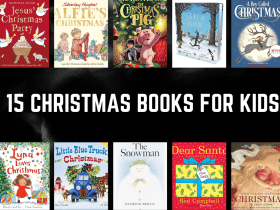How to Choose a Good Book? Have you ever looked at the rows of books as if staring into the Abyss unable to pick just one? You’re not alone. Every year, more than 2 million new books are released around the world—which can make it seem like finding your next read is a bit like trying to find a needle in the haystack.

Key Elements of a Good Book
-
Writing Quality: Clear, engaging prose with proper grammar and style
-
Plot Development: Well-structured storyline with logical progression
-
Character Development: Complex, relatable characters with depth
-
Pacing: Balanced rhythm between action and exposition
-
Theme: Meaningful underlying messages or ideas
Book Categories to Consider
| Genre | Best For | Key Characteristics |
|---|---|---|
| Fiction | Entertainment | Storytelling, creativity, imagination |
| Non-fiction | Learning | Facts, research, real-world knowledge |
| Literary | Analysis | Complex themes, artistic expression |
| Genre-specific | Targeted interest | Specific conventions and tropes |
Important Factors to Consider
-
Reading Level: Match your comprehension comfort zone
-
Length: Consider your available time and reading speed
-
Format: Choose between physical books, e-books, or audiobooks
-
Reviews: Check trusted sources for honest feedback
-
Author Reputation: Research the author’s background and previous works
Publication Details
-
Publishing House: Established publishers often ensure quality
-
Publication Date: Consider relevance for non-fiction works
-
Edition: Look for updated versions when applicable
-
Price Point: Compare prices across different formats and sellers
With these fundamentals in mind, let’s explore the specific steps to select your next great read.

Start with Familiar Territory
Reading books by your favorite authors is a safe bet, as you’re already familiar with their writing style and storytelling approach. Make a list of authors whose work you’ve enjoyed and explore their other titles.
Explore Acclaimed Literature
Consider these proven sources of quality reading:
-
Award-winning books (Pulitzer, Booker Prize, National Book Award)
-
Classic literature that has stood the test of time
-
Bestseller lists from reputable sources
Follow Your Interests
Match your book selection to your interests using this simple guide:
| Interest Area | Book Type | Where to Look |
|---|---|---|
| Hobbies | Non-fiction guides | Specialty sections |
| Career | Professional development | Business section |
| Entertainment | Biographical works | Media/Arts section |
| History | Historical fiction/non-fiction | History section |
Leverage Community Resources
Take advantage of these social approaches:
-
Join local book clubs
-
Participate in online reading communities
-
Ask librarians for personalized recommendations
-
Read verified reviews on Goodreads or similar platforms
Practical Selection Methods
Before committing to a book:
-
Read the first chapter to assess the writing style
-
Check if it’s based on or inspired a good movie
-
Browse your library’s catalog using specific genres
-
Look through your existing collection for unread gems
Now that you know how to find potential books, let’s explore some additional tips to ensure you make the best choice.

Essential Book Selection Tips
-
Read the first chapter before committing to the book
-
Check professional reviews from trusted sources
-
Look for award-winning books in your preferred genre
-
Consider the publication date based on your needs
-
Examine the author’s credentials and previous works
Quick Assessment Guidelines
| Assessment Criteria | What to Look For |
|---|---|
| Writing Style | Clear, engaging prose |
| Reviews | 4+ stars, detailed feedback |
| Length | Matches your reading pace |
| Print Quality | Font size, paper type |
| Price Point | Within budget, format value |
Reading Community Input
-
Join online reading groups for recommendations
-
Use book tracking apps like Goodreads
-
Follow literary influencers on social media
-
Participate in local book club discussions
-
Check bestseller lists in your genre
Do keep in mind that even a wildly popular book may not be the right book for you. Center your reading around you, your interests and what you want to accomplish. If you’re hesitating on a purchase, try borrowing from the library first. A lot of readers presume this to alter up the genres thus they are doing not get bored and burned out with reading.
These are pretty practical tips to use when choosing your books – now here are a few of the references that will help you further in your book selection.

Online Book Review Platforms
-
Goodreads
-
LibraryThing
-
BookBrowse
-
What Should I Read Next
-
LitHub
Professional Book Review Sources
-
The New York Times Book Review
-
Kirkus Reviews
-
Publishers Weekly
-
Book Riot
-
NPR Books
| Review Source Type | Benefits | Best For |
|---|---|---|
| Online Platforms | User reviews, ratings, recommendations | General readers |
| Professional Sources | Expert analysis, in-depth critiques | Serious readers |
| Literary Journals | Academic perspective, detailed analysis | Scholarly readers |
Literary Award Lists
-
Pulitzer Prize for Fiction
-
Man Booker Prize
-
National Book Award
-
Nobel Prize in Literature
-
Costa Book Awards
Book Recommendation Tools
-
NoveList (available through many public libraries)
-
Amazon’s “Customers Also Bought” feature
-
Your local library’s staff recommendations
These resources can help you make informed decisions about your next read. Professional reviews provide expert insights into literary merit, while user reviews offer real-world perspectives on readability and enjoyment. Literary award lists highlight exceptional works that have received critical acclaim. Remember that combining multiple sources often leads to the most well-rounded book selection process.







Leave a Review